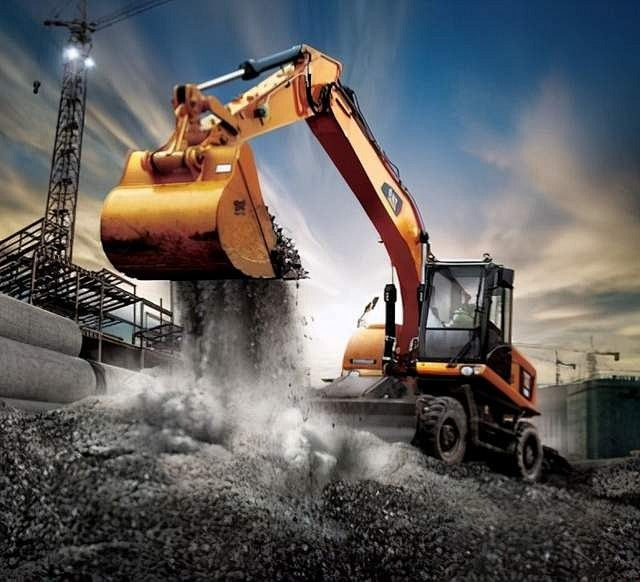In any business, making decisions is a complex process, particularly when it comes to high-cost investments such as the procurement of construction machinery. One area that stands out is the procurement of used excavators, which involves a variety of stakeholders, each with different priorities and expertise. In this blog, we’ll explore the decision-making process and look at how the roles of technicians, finance teams, and company executives (bosses) intersect. Ultimately, the question remains: who holds the power in the decision-making process?

1. The Role of Technicians: The Technical Experts
When it comes to purchasing a used excavator, technicians are the first line of defense in ensuring that the equipment is suitable for the job. Their job is to ensure that the machine is in good working condition, that it will perform as expected, and that it will last for the required amount of time. Technicians inspect the machinery for wear and tear, assess the condition of critical components like the engine, hydraulics, and tracks, and evaluate whether the excavator meets the company’s operational needs.
Key responsibilities of technicians in the procurement process:
- Inspect the machinery's condition: Checking for signs of wear, rust, and previous maintenance records.
- Evaluate functionality: Assessing how well the equipment performs in terms of power, efficiency, and operating hours.
- Confirm compatibility with operational requirements: Ensuring the machine matches the specific tasks it will be used for.
- Recommend or reject: Based on their findings, technicians may suggest whether a machine should be purchased or not.
Technicians play a crucial role, but they do not usually have the final say in the decision-making process. While their expertise is vital in evaluating the technical suitability of the equipment, their influence is often limited by budget constraints and company goals.
2. The Role of Finance: The Guardians of the Budget
Once the technician has assessed the machinery, finance departments come into play. The finance team’s primary responsibility is to ensure that the purchase of a used excavator aligns with the company’s financial goals. They evaluate the cost-effectiveness of the purchase, compare it against budget allocations, and forecast how this purchase fits within the overall financial health of the company.
Key responsibilities of finance in the procurement process:
- Budget assessment: Ensuring the purchase fits within the allocated budget.
- Cost analysis: Determining the total cost of ownership (maintenance, repairs, insurance, etc.) and comparing it with the expected return on investment (ROI).
- Risk management: Evaluating the financial risks associated with purchasing second-hand machinery, such as unexpected breakdowns or future repair costs.
- Financing options: If the purchase requires financing, finance teams will assess loan options or leasing arrangements.
Finance often has significant influence in the decision-making process because their role is to ensure that the company does not overextend financially. However, they are also tasked with balancing costs with the need for effective, reliable machinery.
3. The Role of the Boss: The Ultimate Decision Maker
At the top of the chain is the boss—the owner, CEO, or senior executive who holds the final decision-making power. The boss is responsible for aligning the decision with the company’s long-term strategic goals, whether that involves expanding operations, upgrading machinery, or minimizing downtime.
Key responsibilities of the boss in the procurement process:
- Strategic alignment: Ensuring that the purchase supports the company’s overall goals and vision.
- Approval authority: Ultimately, the boss has the final say on whether the purchase goes ahead, especially if the cost is significant or if there are budgetary constraints.
- Risk tolerance: The boss will weigh the financial risks against potential rewards, especially if purchasing a used machine comes with unknowns.
- Approval of terms: In many cases, the boss will have to sign off on the contract terms, financing options, or leasing agreements.
In the end, while the technicians provide valuable insights, and finance ensures that the purchase is financially viable, the boss makes the final decision based on a combination of technical, financial, and strategic factors.
4. Who Ultimately Decides?
Now, to answer the question: Who holds the power in the decision-making process when it comes to purchasing a used excavator?
In most organizations, the final decision lies with the boss. They have the responsibility to ensure that all the pieces—technical, financial, and strategic—align with the company’s needs and vision. The technicians provide crucial technical assessments, while the finance team ensures that the purchase is within budget and financially viable. But, the boss’s role is to make the final judgment call, taking into account both the advice of their team and the broader company objectives.
However, it’s important to note that the decision-making process is rarely linear or one-sided. In smaller businesses, the boss may also take on the roles of technician and finance expert. In larger companies, there may be multiple layers of approval, and the boss may defer to technical or financial leaders for more in-depth input.
Final Thoughts
In summary, the decision to purchase a used excavator involves a collaborative decision-making process that includes input from technicians, finance teams, and the boss. While the technician assesses the machine’s quality, finance ensures financial feasibility, and the boss ultimately weighs in on the strategic alignment with the company’s goals.
Ready to find the right used excavator for your business?
Let our expert team help you make the smart choice.









